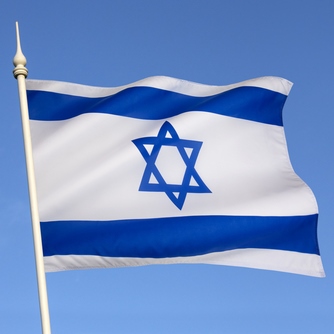
News

Israel reaches out a helping hand to Africa
According to the World Health Organisation (WHO), as of 2015, 25% of Senegal’s population does not have access to basic drinking water services. And in Kenya, only 58% of the population has access to safe drinking water. Israel-based organisations like IsraAID, MASHAV and Innovation: Africa are changing this reality.
Innovation: Africa has brought electricity and safe drinking water to more than a million people in rural Africa, using Israeli innovation and technology. The organisation is determined to improve lives of African villagers by ensuring that they have access to sustainable electricity.
The organisation’s founder is Sivan Ya’ari, an Israeli. She was in her 20s when she was sent to Africa for work. On seeing the poverty, she became determined to change this and started Innovation: Africa 10 years ago. The organisation uses Israeli-designed and manufactured solar panels and water treatment systems. Operating out of Israel, the organisation has provided electricity and water to more than 170 communities in eight African countries.
“Africa is still in poverty because of the lack of energy,” Ya’ari told the UK newspaper, Jewish News. “People are still searching for water – because there is no energy to pump water.”
A lack of electricity leads to compounded problems with water, health and education, Ya’ari explained. “They said: ‘We don’t have vaccines because we don’t have a fridge, and we don’t have a fridge because we don’t have electricity.’ Women were giving birth with candles and kerosene lamps for lighting. I went to the local school where it was the same, children trying to study in the dark.”
IsraAID is an umbrella body of 35 Israel-based humanitarian and aid organisations. The mission of IsraAID is to provide immediate and effective crisis assistance around the world. This means that when Kenya was hit by a famine in 2007, IsraAID was there to provide food and water for the communities that were suffering during this time.
The work IsraAID focuses on is different in each country, as each country has different problems to overcome. In South Sudan, for example, IsraAID has trained more than 127 people in social work to help combat the systemic issue of gender-based violence in a country that is recovering from the ravages of civil war.
Started in 2001, IsraAID has aided African countries many times in the past 17 years. IsraAID has provided employment opportunities to the disenfranchised youth in Kenya and Uganda, and has provided cheap access to clean and safe water for the communities those youth belong to.
By working with the communities at a grassroots level, IsraAID is not only ensuring a long-term strategy of development, it is also avoiding fostering a culture of dependence.
As IsraAID CEO Navonel Glick said: “I’d like to think we are helping people help themselves, so that when we have to leave, they are stronger and more capable than they were when we arrived.”
Programmes such as its Recreational and Empowerment Training and Workshop in Liberia aim to provide communities with the skills to solve their own problems. To this end, there are workshops on gender-based violence, as well as social services training programmes.
The aim of MASHAV – Israel’s Agency for International Development Co-operation – is to develop good relationships with the international community. Its work focuses on helping developing nations increase the living standards of their communities, as well as helping communities in times of crisis.
The agency has worked in Ethiopia, Ghana, Kenya, Rwanda, South Sudan and Uganda, helping people to get access to food, water, electricity, medical treatment, education and protection against violence.
MASHAV believes in a holistic approach to humanitarian efforts, making sure that all aspects of people’s lives are improved to ensure that they are able to grow and develop.
In Ghana, MASHAV has provided the Kumasi community with a neonatal care facility to lower infant and mother mortality rates in a community where more than 14% of births are at risk due to malnutrition or disease. Prior to MASHAV’s facility, the only neonatal care available was two times over its maximum capacity, leading to large-scale cross-infections and the spread of disease.
Hadassah Medical Organisation in Jerusalem – a medical training facility and hospital – has sent students and doctors to Mekelle, a city in northern Ethiopia, every year for the past five years to complete their rotations. In their last visit, eight doctors, two nurses and a physiotherapist treated spinal injuries suffered by underprivileged children in the community.
Within a week, the physicians had managed to operate on five children, who would have likely died from their conditions had the Hadassah medical team not intervened. The school also left the Mekelle hospital with the equipment needed for these surgeries.
These are just a few examples of Israel’s outreach into Africa (north of South Africa’s borders), where it is determined to make a difference.




